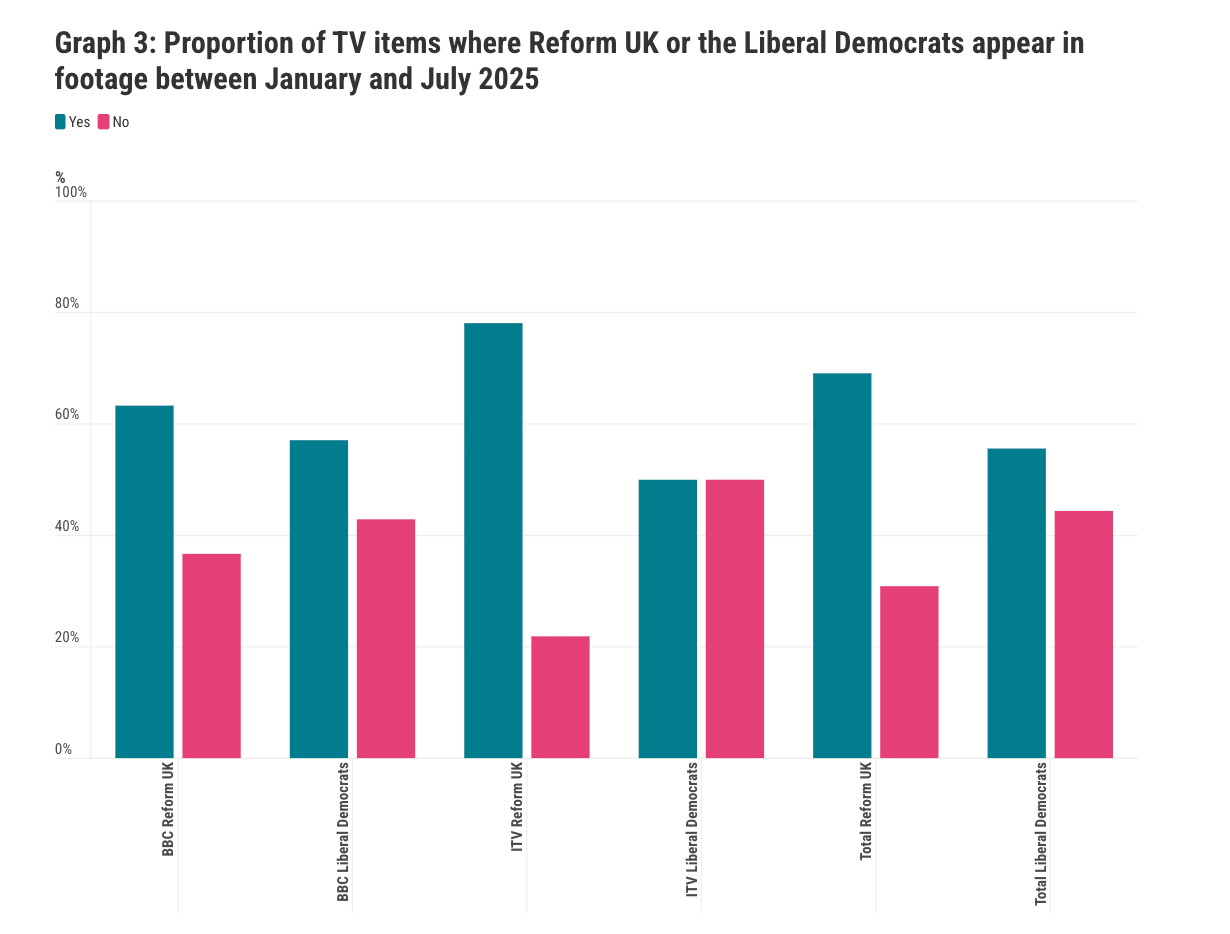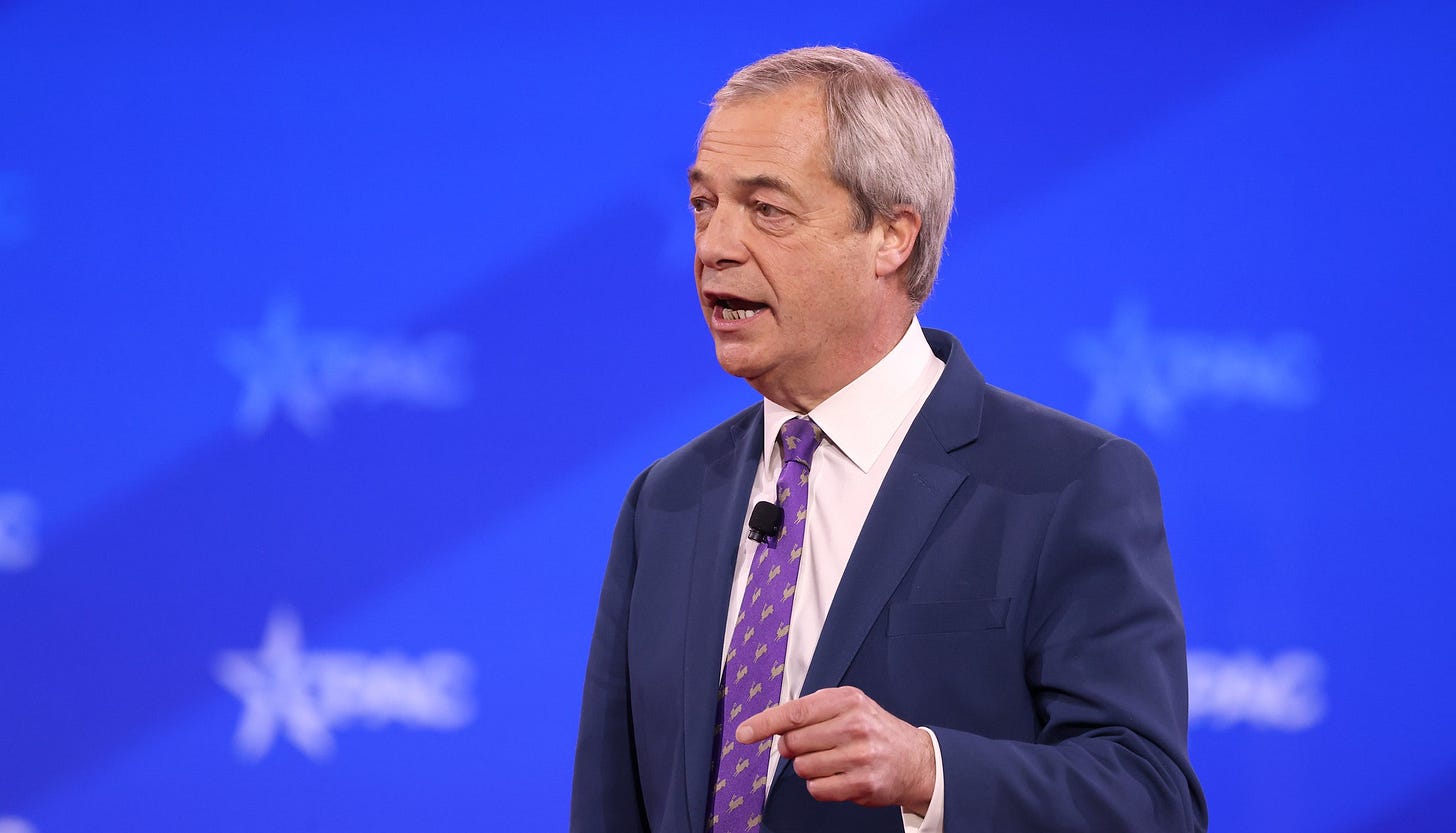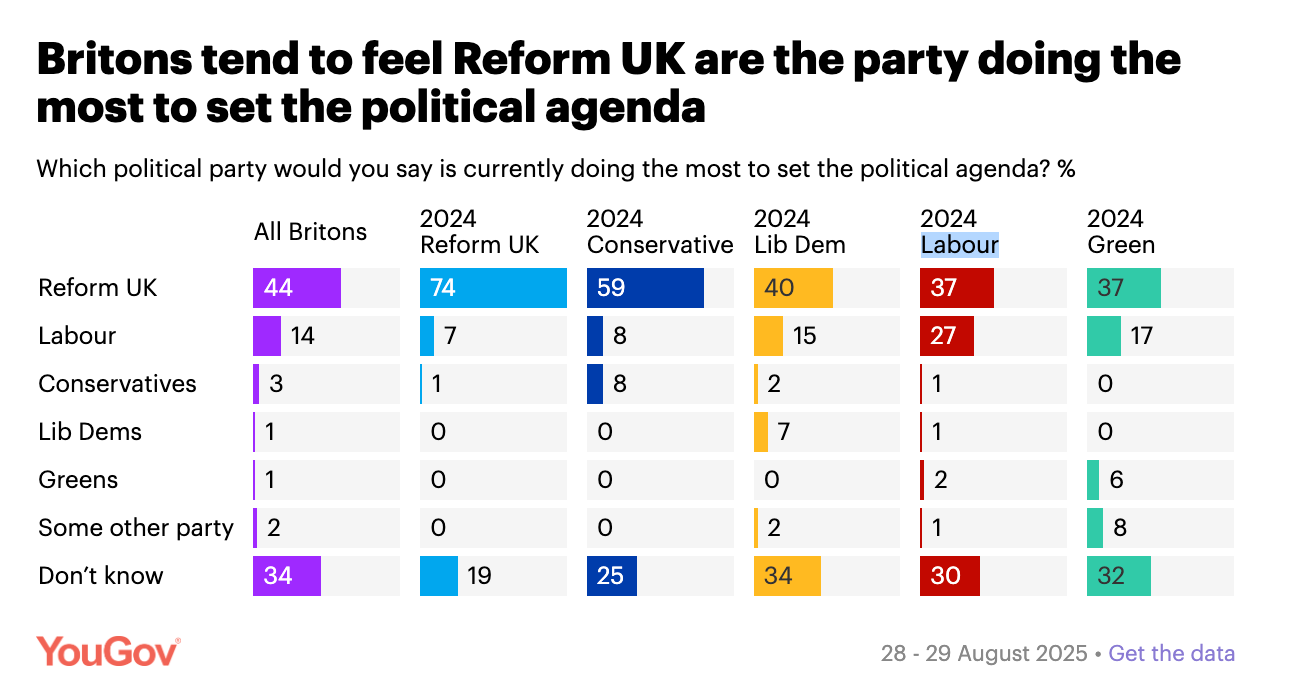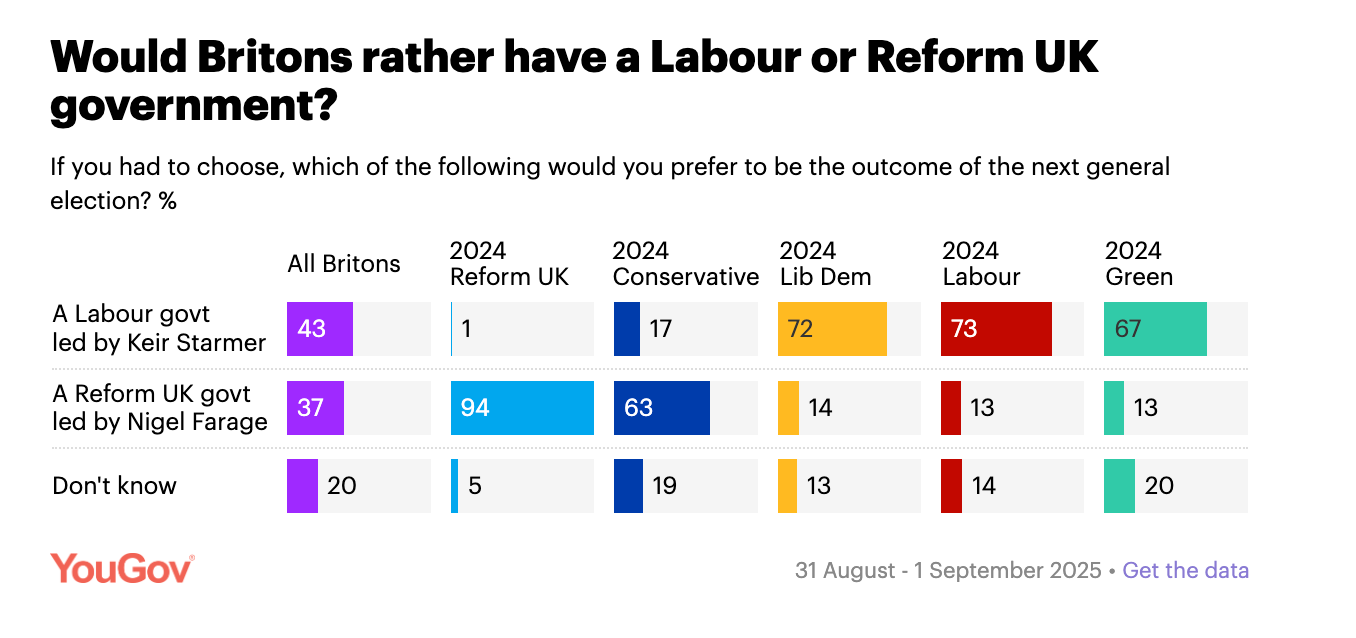Why is the BBC, like, obsessed with Reform UK?
The Tories are imploding. Reform is surging. I'm afraid it's news
Ed Davey is angry. And he hopes you’ll like him when he’s angry. Or at least notice him. You see, it isn’t easy leading a minor party in Britain. When the press isn’t ignoring your policies, they’re making fun of your weirder supporters. It is for this reason that the Liberal Democrats have historically run a quite impressive media operation. It’s often the only way to get a hearing.
On practically any story of import, the BBC — by far the most important news organisation in the country — will always run the government’s line and the opposition’s rebuttal. The Lib Dem view will not always be sought, but will be taken if they are either fast or funny. This explains why Davey was frequently falling into variously sized bodies of water during the 2024 general election campaign.
Of course, Nigel Farage has no such problems. The leader of Reform UK needs only raise an eyebrow and he is granted column inches and moving pictures on the BBC. To that end, the Lib Dems have written to Ofcom, demanding new requirements for what it terms “fair political coverage” from the broadcaster, following months of “wall-to-wall” coverage of Reform. Do they have a point?
A recent study from Cardiff University suggests they might. Its analysis found that Reform UK, which has five MPs, was referenced in 25.1% of News at 10 bulletins, whereas the Lib Dems, with 72 MPs, were featured in 17.9%. The corporation has a defence of its coverage here.
The central weakness of these criticisms is that Reform UK is currently leading in national polls, and has done so for months. Sure, Britain is four years away from the next election and Farage’s various parties have a long and inglorious history of disintegration. But broadcasters have a responsibility to take current electoral support into account.
And about those five MPs. Granted, that is significantly lower than 72, but Reform secured more than four million votes at the last election, making it the third-largest party in terms of vote share — behind Labour and the Conservatives and almost 600,000 ahead of those proportional representation-loving Lib Dems.
Since then, Reform UK picked up 677 councillors and took control of 10 councils in this year’s local elections — securing more votes than any other party (an estimated 30% national share), while also winning two mayoralties and a parliamentary by-election.
That Labour and the Tories seemed to conspire to take the summer off, leaving the stage for Farage, is not the BBC’s fault. This is not an invitation for uncritical coverage of Reform UK or Farage. But wishing the party or the man simply disappear does not seem to be an especially lucrative strategy.
Keir Starmer has had a bad week after a bad first year in office. But it is the Tories who are facing an existential crisis. The defection yesterday of Danny Kruger to Reform UK served only to underline that threat. Not simply because Kruger is the first sitting Tory MP to defect, nor because he has served so many Tory leaders, from being David Cameron’s speechwriter to political secretary to Boris Johnson and most recently Kemi Badenoch’s shadow work and pensions minister. But his explanation.
Kruger said:
"This is my tragic conclusion, the Conservative Party is over, over as a national party, over as the principal opposition to the left."
Now, one wouldn’t expect a defecting MP to laud his old party as the brilliant future of politics. But it is notable how Kruger eschewed the usual ‘I didn’t leave my party, it left me’ in favour of a blunt admission that Reform UK was simply a better vehicle for the sort of right-wing politics he practices1.
A Reform UK government is far from inevitable. A recent YouGov poll found that twice as many people (49%) expect the party would do a bad job in government, compared with just 24% who believe it would do a good job. Furthermore, despite its poll lead, when YouGov asked voters to choose between a second Labour term under Starmer or a Reform UK government under Farage, 43% chose the former, with 37% opting for the latter.
The story here is that the Conservatives — the most successful political party in the history of democratic politics — might be replaced as the main party of the right in Britain. That is a big deal. It requires coverage, as does Reform’s rise and its programme for government. There is plenty to criticise the BBC for how it covers politics and its interpretation of “due impartiality”. This isn’t it.
It also represents something of a gut punch for Robert Jenrick. Kruger ran Jenrick’s leadership campaign







I faced one of the many failings of my education head-on and t'internet searched "impartiality". Of the definitions offered to me, I chuckled out loud at "disinterestedness" (to the further bewilderment of my colleagues) and left it there. I didn't bother with a more-balanced reading of other options.
In an increasingly frustrating and misleading "click-bait" news environment, the focus is more likely to lean towards those that bait the most. Whilst I'm not a big fan of that, I have an understanding of it.
To be featured in "the news", those who wish to be featured must do something newsworthy. Which is, of course, highly subjective.
The problem is the political agenda is being set by the right wing newspapers that now predominantly support Reform rather than the Tories. The BBC follows their agenda. The mission of the BBC is to inform, educate and entertain. It may be great in educating and entertaining viewers on the delights of natural history, but is cowardly in educating viewers on political policy issues, avoiding criticising policy proposals that are at best simplistic and at worst simply bonkers.
Moreover if the Reform coverage is based on the party's current standing in the national opinion polls, and its control of ten council and two majorities, why isn't the BBC covering what is actually going on in these areas to demonstrate how well, and often how badly, these councils are being run compared to the administrations they replaced? There may be some brief reports on local news channels, but very little gets covered in the national news reporting and political analysis.
There are strict requirements during GE campaigns regarding impartiality. All the Liberal Democrats are asking is that this approach should imbue BBC coverage of politics tge rest of the time, though of course ignoring attempts by political parties to exploit the system to cover their own weaknesses, as has happened in recent GE campaigns.